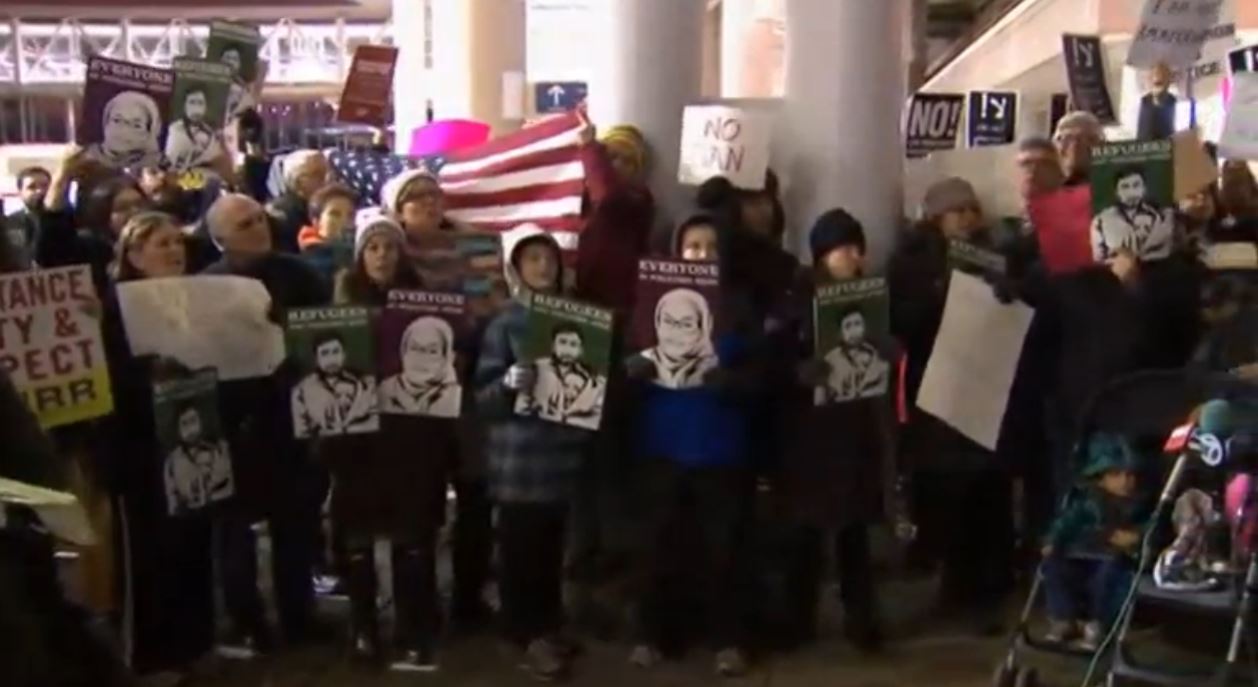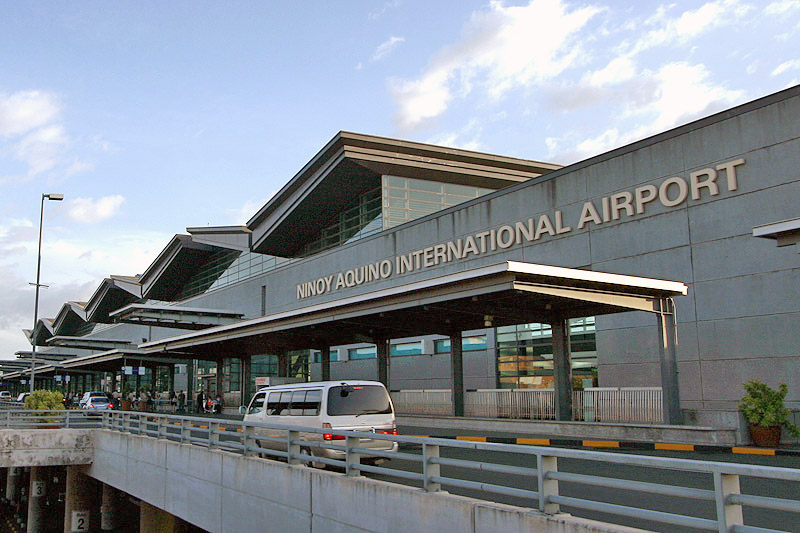
(Reuters) — President Donald Trump’s order for “extreme vetting” of visitors and legal U.S. residents from seven Muslim-majority countries sparked outrage and protests on Saturday (January 29) with activists arguing in court to try to block deportations of people stranded in U.S. airports.
The new Republican president on Friday put a four-month hold on allowing refugees into the United States and temporarily barred travellers from Syria and six other countries. Immigration lawyers, activists and Democratic politicians reacted furiously, and many worked to help marooned travellers find a way back home.
In Brooklyn, the American Civil Liberties Union sought to block the order in an emergency hearing, a large crowd chanting “Let them stay, it’s the American way!” outside the courthouse.
Hundreds of protesters gathered at airports in Dallas, Chicago, New York and elsewhere while inside, anxious family members waited and worried for travellers.
At Chicago O’Hare International Airport, holders of green cards waited for hours to be allowed through. Fiona McEntee who is a member of The American Immigration Lawyers Association said the volunteer lawyers at O’Hare have been unable to reach people who have ben detained.
“We haven’t been able to speak to them. I tried. I went into the CPB. I had a G28 which is the form that we normally file with cases that allows us to enter an appearance as an attorney. They do not honor them. They would not let me speak to the client. They are not giving us any information. They have not been able to communicate with their family members so there’s been no phone calls. Nothing,” she said.
McEntee said her group only knows of detainees whose family membes came to the airport to welcome them.
“There could be whole families traveling together and they could be all in there. And this isn’t even the refugees situation. This is permanent residents. Green card holders that are returning home to America from a brief trip abroad and their in secondary inspection. They’ve basically been detained for five hours,” McEntee said.
Trump, who took office just over a week ago, had promised during his campaign what he called “extreme vetting” to do more to protect Americans from terror attacks.
He told reporters in the Oval Office that his order was “not a Muslim ban” and said the measures were long overdue.
The ban affects travellers with passports from Iran, Iraq, Libya, Somalia, Sudan, Syria and Yemen. Green card holders will not be allowed back in until they are re-screened.
Confusion abounded at airports as immigration and customs officials struggled to interpret the new rules, with some legal residents who were in the air when the order was issued detained at airports upon arrival.
Virginia Governor Terry McAuliffe said that he will ask the commonwealth’s attorney general to look at legal avenues “to allow people to continue to come to the greatest country in the entire globe.”
“We are a state that is open and welcoming to everyone. I am very concerned about the ramifications of this new executive order,” he said.
During the presidential campaign, Trump promised to clamp down on immigration as a way to prevent attacks. He first proposed a ban on Muslims entering the United States, modifying that later to “extreme vetting” of immigrants from certain countries.
It was unclear how many legal permanent residents would be affected. A senior U.S. administration official said on Saturday that green card holders from the seven affected countries have to be cleared into the United States on a case-by-case basis.
According to State Department guidance, travellers who have dual nationality of one of these countries will not be permitted for 90 days to enter the United States.
Legal residents of the United States were plunged into despair at the prospect of being unable to return to the United States or being separated from family members trapped abroad.
In Washington, the agencies charged with handling immigration and refugee issues grappled with how to interpret the measure, and enforcement was uneven.
U.S. officials, speaking on condition of anonymity, said they were not consulted on the executive order and in some cases only learned the details as they were made public.
At the State Department, a senior official said lawyers were working closely with their counterparts at Homeland Security to interpret the executive order, which allows entry to people affected by the order when it is in the “national interest.”
However, a federal law enforcement official said, “It’s unclear at this point what the threshold of national interest is.”
Senior administration officials said it would have been “reckless” to broadcast details of the order in advance of new security measures. The officials told reporters that Homeland Security now has guidance for airlines.







